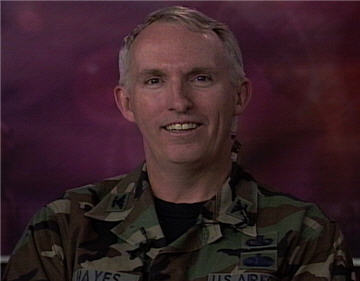CIO Sessions: Colonel John Hayes of the Air Force Reserve

In this CIO sessions interview, Colonel John Hayes, Chief Information Officer of the Air Force Reserve command, talks about the challenges of managing IT in battlefield situations, deployment of wireless technologies, Web 2.0 and about tapping into the technology expertise of its recruits and 'citizen warriors' for the development of innovative ideas, like the new ‘Emergency Notification’ system.
Colonel Hayes is responsible for communications, computer systems,and information management supporting the command headquarters, Air Reserve Personnel Center, and more than 684 Reserve units, which include 43 flying wings and 75,000 personnel. Prior to his current position, he was the Joint Task Force Deputy Director for Communications in Uphold Democracy (invasion of Haiti) and a classified Balkans planning effort. In 2003, Colonel Hayes served as the Central Command Air Forces director of communications, leading the USAF communications forces during Operation Iraqi Freedom.
I asked Colonel Hayes about some of the most successful deployments of technology during the Iraq war.
"...the ability for various organizations to text chat over our secure networks allowed us to basically prosecute and attack time sensitive targets in a way that we never expected to see happen. We had some other collaborative tools out there but frankly they were a little but difficult for the users to get their hands around, but something as simple as having about six different organizations all text chatting in one room would allow us to basically dynamically re-task our intelligence assets so that when forces were involved in ground combat, we could focus the intelligence operations and air power to support those ground forces in combat and that was the biggest thing that surprised me. "
Regarding VoIP, Colonel Hayes said the he can't yet make a business case to deploy the technology.
Frankly we’re not in a position right now where the business case has made sense. And in our command, resources are pretty lean for Air Force Reserve Command. We like to say that we provide about 20% of the Air Force’s capability with about a 4% of the budget and the way we’re able to do that is a lot of our people are part time, military members, and their full time civilian members, so we provide an awful lot of capability for a very small share of cost.
